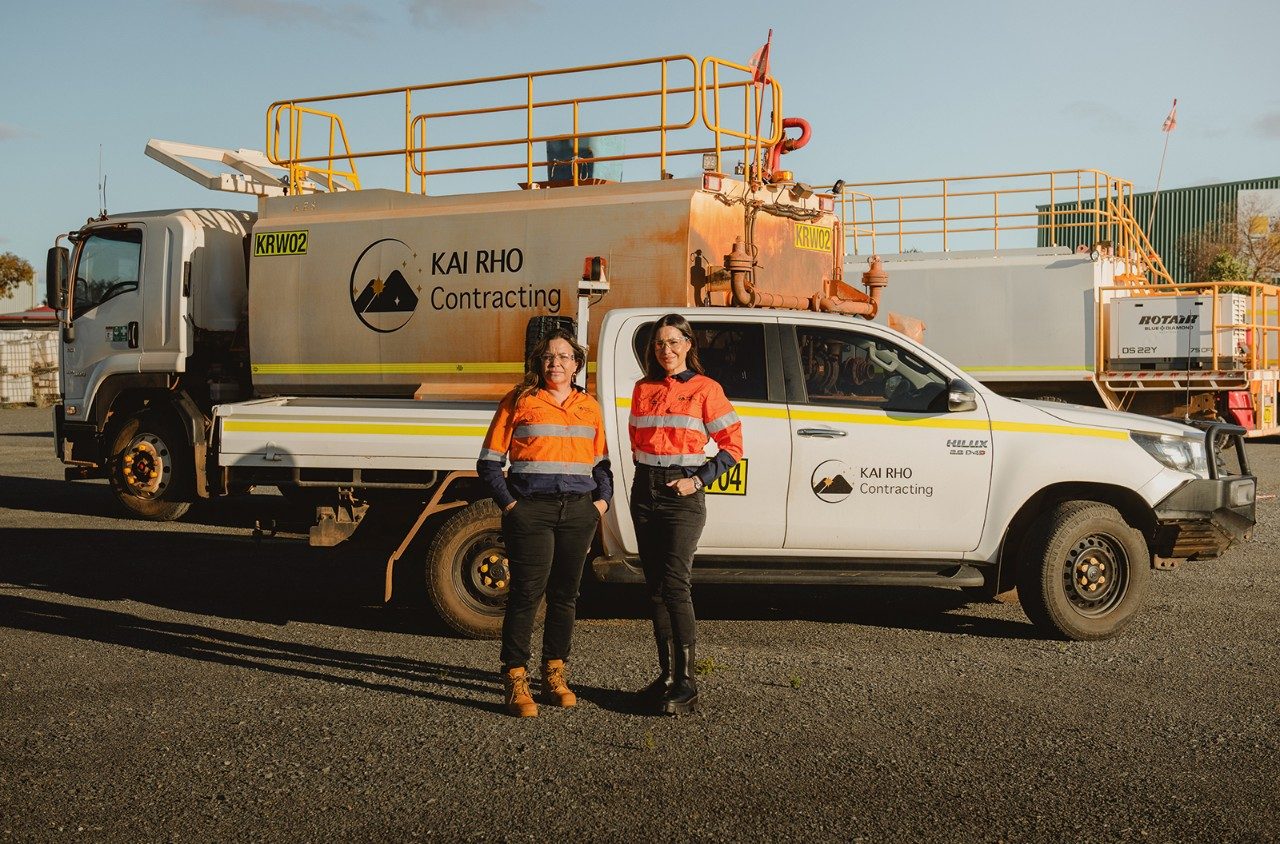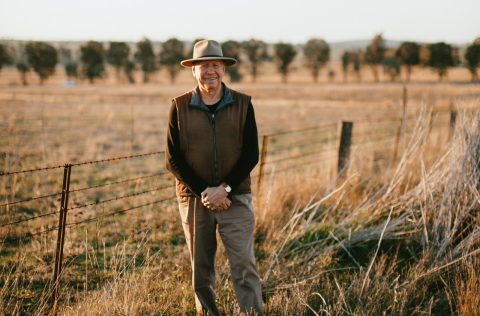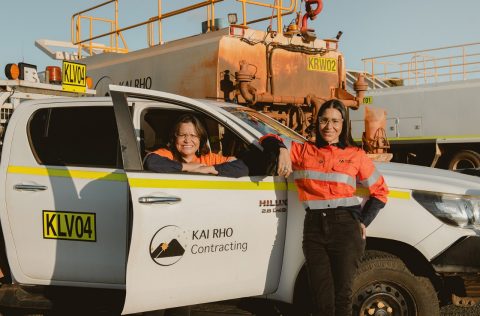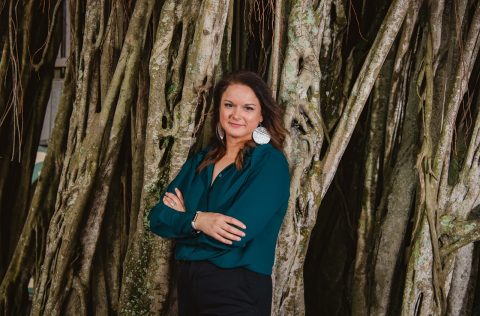The Success of These First Nations Businesses Are a Win for All

A focus on supply chain diversity is benefiting First Nations companies, their communities and the broader corporate sector – and there are plenty of success stories to show for it.
The growth of organisations owned and operated by Australia’s First Nations people is a win for all. “We’ve been doing this for more than 60,000 years so I’d suggest that, as the world’s first traders, maybe there’s something we can teach broader society about how we do business,” says Kate Russell, an Awabakal woman from Lake Macquarie in NSW and CEO of Indigenous enterprise network Supply Nation. “We build our businesses around community, trust, communication, consensus and collaboration. That sounds like a pretty good business model!”
As Supply Nation celebrates its 15th year of operations and 5000th registered Aboriginal and Torres Strait Islander company on its platform, Russell says that mainstreaming First Nations ways of doing business has advantages all round. “Supplier diversity gives you access to new markets, brings innovation, risk mitigation, creativity, competitive advantage and community impact. As new ESG reporting regulations come in for many corporate and government organisations, the importance of positive social impact is also growing.”
The federal government’s Indigenous Procurement Policy (IPP) was designed to stimulate economic development for First Nations businesses, requiring that a minimum percentage of high-value Commonwealth contracts are awarded to Indigenous operators. Since the IPP was enacted in 2015, an estimated 64,000 contracts have been generated, worth more than $9.5 billion for some 3900 First Nations companies (as at September 2023). Almost a decade after the IPP’s introduction, the government was looking for ideas to strengthen it and held a public consultation, which closed in February.
“I’m excited to see what comes out of that consultation process,” says Russell. Currently, before going to market for any procurement contracts in remote areas and for all contracts worth between $80,000 and $200,000, government departments must first search for a suitable provider that’s a majority Aboriginal and Torres Strait Islander-owned SME, using Supply Nation to find suitable registered businesses.
Per the IPP definition, a business must be 50 per cent or more owned by Aboriginal and Torres Strait Islander people to be registered on Supply Nation’s directory. But to be certified by the organisation, it must be a minimum 51 per cent or more Aboriginal and Torres Strait Islander-owned, managed and controlled enterprise. Russell says they have been advocating for years for that to become the definition of a First Nations business and she’s hopeful the IPP will make the adjustment. “Certification adds an extra layer of rigour in the verification process. We look at financials, we interview people, we look at their governance documents. It gives our government and corporate members security that they are engaging with an Indigenous business in the true sense of the word.” It also helps mitigate the problem of “black cladding”, a form of fraudulent activity in which non-Indigenous businesses game the IPP.
Dean Foley, founder of First Nations entrepreneurship hub Barayamal, says another problem is people falsely claiming Aboriginal and Torres Strait Islander heritage. “We need a crackdown on Indigenous identity fraud because it takes opportunities away from Aboriginal people and at the moment a lot of people don’t trust the system,” says Foley, a Kamilaroi man from Gunnedah, NSW, and ex-RAAF intelligence analyst.
Foley urges organisations to enter contracts with smaller First Nations enterprises when possible. “If there’s only a handful of companies winning the majority of Indigenous procurement contracts it’s not spreading out to Aboriginal communities and helping them overcome poverty. At the grassroots level, we’re not seeing much of that $9 billion trickle down. The IPP is a well-intentioned policy that needs a few tweaks to really support Indigenous entrepreneurship because if it’s only making a few people rich, it’s not helping to close the gap.”
Despite the obstacles, Australia’s First Nations corporate ecosystem is gaining pace. At the Business Council of Australia (BCA), a dedicated program, Raising the Bar, requires signatory members to progressively increase their spend with Indigenous businesses. “We designed it as an initiative to help our members deliver on their ambition to increase their procurement from Indigenous suppliers,” says BCA chief executive Bran Black. The program is on track to meet its target of $3 billion in cumulative influenceable spend between 2019 and 2024.
“Since the sector emerged in the ’70s and ’80s and ramped up in the 2000s, Indigenous Australians have built their ventures from the ground up,” says Dr Michelle Evans, director of The University of Melbourne’s Dilin Duwa Centre for Indigenous Business Leadership. The Indigenous Economic Power Project (IEPP) at the university aims to better quantify the economic and social contributions of First Nations businesses: its third snapshot study released in April found that the 2022 input of Indigenous companies to the Australian economy involved more than $16 billion in revenue, $4.2 billion in wages and 116,795 jobs. “There’s a long way to go but those are brilliant numbers.”
Case Study: Dreamtime Tuka, the bush tucker purveyor

Herb Smith had no intention of putting his feet up when he opted for early retirement after 31 years with the NSW Police Force. “I wanted to start a company around the Indigenous flavours I’d grown up with,” says Smith, a Wiradjuri man from Wellington (Wiradjuri Country) in NSW’s Central West. He had no business experience but his police training made for excellent research skills. “When I was deciding what product I’d develop, I asked myself, ‘What would you buy, Herb?’ I like cakes, biscuits and slices, and morning and afternoon teas are very popular. My research also showed me that a lot of big companies had Aboriginal procurement policies in place.”
The number one challenge was the manufacturing infrastructure. “At the age of 53, I wasn’t going to start that from the ground up so I went looking for someone who could make the products.” In 2013, he registered his company, Dreamtime Tuka, with Supply Nation and cold-called some regional bakeries nearby. “I liked the history of Earlyrise Baking Co in Dubbo because it was started by their grandfather and remains very family-oriented.” Smith’s meeting with John Stevenson – one of the three brothers who own Earlyrise – proved prudent and things started to move fast.
“We were working on product development when I was asked to take some biscuits and slices to showcase Aboriginal foods to staff at the Qantas headquarters so the Earlyrise boys baked me some options,” says Smith. The slices hit the spot with the procurement team, who invited him to return and formally pitch Dreamtime Tuka at a supplier event. The business was still in its infancy. “I still have to pinch myself,” he says. “I knew we had a great product; the Stevenson brothers are spot-on with quality. I knew it could be the start of something.”
Qantas thought so, too, and after travelling to Dubbo to check out the baking facilities, placed an order for 150,000 lemon myrtle and coconut slices for regional flights.
“The next order was for 350,000,” says Smith. “Since then we’ve gone across the Qantas network throughout Australia and in October 2023, we were put on the menu with a beautiful wattleseed brownie on international flights out of Sydney. We now supply millions of biscuits and slices to Qantas each year.”
Showing his innate business acumen, Smith approached the Stevensons about a partnership in 2022. “It protected the manufacturing of our product and provided me with resources that I didn’t have,” says Smith, who is the majority owner with 51 per cent, chair and CEO of Dreamtime Tuka.
“It’s important to me to put back in the community – we sponsor football teams and supply products for local school events – but for me employment is the big one,” he says. “The way we close the gap for Aboriginal people is by giving them a job. That’s why we launched the Dreamtime Tuka Aboriginal Pathway to Employment Program in 2019.” To drive it, Smith connects with various employment services and says Earlyrise also supports the initiative. “We’ve put quite a few Aboriginal people into jobs at the bakery.”
What started as a business agreement has become a deep friendship and now the Stevensons call Smith their fourth brother. “It’s the best example of reconciliation,” he says. “Blackfellas and whitefellas working together.”
Case Study: Kai Rho Contracting, the intergenerational trailblazers

Sisters Rowena Leslie and Katrina Stubbs, both Wongi women from Kalgoorlie (Wongatha Country), were young mums with small children when they started a business to service the mining industry they’d grown up surrounded by. “We hired one water cart and it grew from there,” says Leslie, who’s CEO alongside CFO Stubbs (below, right, with Leslie). Last year Kai Rho Contracting marked a decade in operation and now offers civil construction and waste management services, as well as water cartage and dust suppression. Its team of 11 grows to 25 contractors in peak times.
In 2018, global mining company AngloGold Ashanti approached them to provide services for its Tropicana gold mine. “That was a big break for a small business but we were gearing up for it and were ready,” says Leslie. “AngloGold were looking to contract with the local Indigenous community. We’ve been providing all the refuelling, waste management and water on that site ever since and it’s allowed us to really grow our capabilities.”
For the sisters, the business has always been about more than making money. “Katrina and I wanted it to allow us to do things that would strengthen our community,” says Leslie. It goes beyond aiming to hire Aboriginal people. “We want them to grow into leadership roles. When we speak to clients, we always ask if our people can work closely with their supervisors or project managers. The right clients help us to maximise those opportunities.”
Sometimes it ends with Kai Rho employees moving to its client companies, which Leslie sees as a net positive. “When you train someone up, for sure you want them to stay with you but when they get into a big company and gain more experience, that’s awesome. It means they can create channels for work for other Indigenous people. And maybe, down the track, they’ll suggest Kai Rho for a project. It’s a long game.”
To that end, Leslie is also co-founder and chair of the Goldfields Aboriginal Business Chamber, born from a clutch of local SMEs tendering for a large contract together. That pitch wasn’t successful but it crystallised the need for a formal network to share job openings in the community. “We get the big companies to come and talk to us about what they need and give us an opportunity to put our price in,” she says.
Leslie, who has an Arts/Law degree, and Stubbs, who has a diploma of Business Management and HR, credit their mother and stepfather for inspiration and advice. “In 2001, they started their own company, Bundarra Contracting,” says Leslie. “All of us kids were along for the ride and they are such a hard-working couple. Their leap of faith gave us the courage and confidence to do it as well. And we’ve been able to ask them for advice about particular contracts, tenders and pricing. We had so much to learn. Now Katrina and I are passing that onto our own children.”
Case Study: Marrawah Law, the industry game-changer

As a young girl in lutruwita/Tasmania, Trawlwoolway woman Leah Cameron says she didn’t know what a lawyer was. In 2013, six years after earning her degree and practising certificate, she founded Marrawah Law and today has a team of 15 working from offices in Cairns, Brisbane, Melbourne, Perth and Hobart. The firm’s biggest client is the Queensland government and it’s also acted for the energy, telecommunications and auto industries. Cameron has won a raft of awards.
“I started the business out of sheer frustration, to be honest,” she says. “I felt that First Nations mob are sometimes bullied and bamboozled into certain positions on legal issues. We can be a linchpin for navigating the two worlds and facilitating good outcomes for Indigenous businesses and communities because we can see both sides of the coin and push government and industry to do better in this space.”
About 80 per cent of her team is First Nations and Cameron is committed to bringing Aboriginal and Torres Strait Islander law students into the firm. “I want them to gain experience outside the areas where they’re typically pigeonholed, such as criminal and family law. Our mob needs legal help in all sorts of areas – we’re doing business out there!”
The Queensland government engaged Marrawah to develop a corporate wealth-sharing model to give regional and remote Aboriginal and Torres Strait Islander communities the resources to set up their own companies and share the profits. “The initiative is a partnership between the state and local governments, the local shire and Fujitsu. In 2022 we rolled out the pilot in Cherbourg,” she says of the Aboriginal community 267 kilometres north-west of Brisbane. “We created a choose-your-own adventure guide as to how the community wants to run a business, with all the documents to cut costs and red tape. It’s a template that can be used nationwide, which is really exciting for us because access to – and the cost of – legal advice often prevents good work being done in communities.”
Supply Nation research has shown that for every $1 spent at Marrawah Law, $4.41 of social impact is generated via the firm’s pro-bono work, its supply chain and staff. In August, Marrawah Law announced the Palawa Business Hub. “It’s a community-led unit to support First Nations businesses around procurement, advocacy and legal support in lutruwita/Tasmania,” says Cameron. “It’s my home Country so I was passionate about it. We’ll set it up as its own entity so it can stand on its own two feet.”
There’s a lot of talking involved in her profession but Cameron cites perhaps a more important skill, which she credits to her heritage. “We’ve been sitting back and making space to listen and think for tens of thousands of years. The other week I was speaking to graduates and I said, ‘Don’t try to fill a room with noise – just sit back and listen and understand the power of that.’ It’s a new take on a very, very old tradition.”



